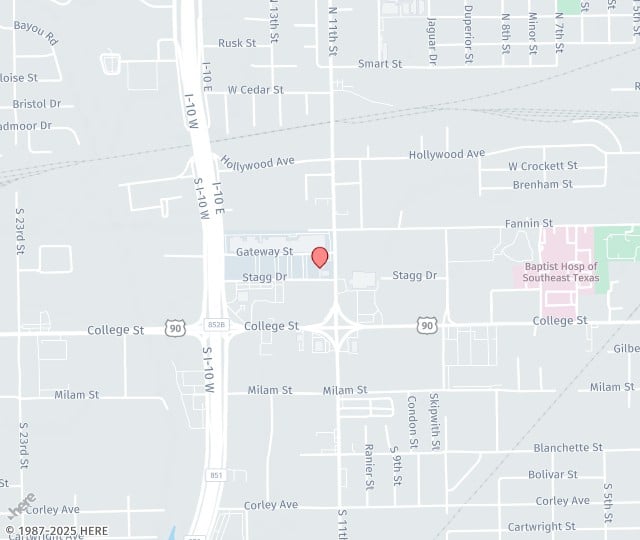Incontinence is an uncomfortable conversation to have with anyone, including your doctor. The good news is that incontinence is treatable. You do not have to live with this difficult and embarrassing condition. Here at Texas Center for Health, we will educate you on the treatment options and give you the support you need deal with incontinence symptoms.
What is Urinary Incontinence?
Urinary Incontinence is a common condition that occurs when muscles and nerves that help control the bladder. You may experience urine leaks when you cough or sneeze. You may also experience sudden urges to go and have difficulty getting to the bathroom in time. Your TCH provider can create a treatment plan that addresses your specific symptoms that might be causing the problem.
What Causes Urinary Incontinence?
- Stress incontinence causes urine to leak when you sneeze, cough, laugh, lift heavy objects, exercise, or put pressure on your bladder.
- Urge incontinence is when you have a sudden urge to go. You may even have the urge to go when you touch or hear running water. This can occur even if your bladder is empty. If you go eight or more times a day and more than once at night you may have overactive bladder.
- Overflow incontinence is when you are not able to empty your bladder completely so you may experience urine leaks when your bladder is full.
- Functional incontinence is when you have medical conditions that keep you from making it to the bathroom in time.
Types of Urinary Incontinence:
- Stress incontinence causes urine to leak when you sneeze, cough, laugh, lift heavy objects, exercise, or put pressure on your bladder.
- Urge incontinence is when you have a sudden urge to go. You may even have the urge to go when you touch or hear running water. This can occur even if your bladder is empty. If you go eight or more times a day and more than once at night you may have overactive bladder.
- Overflow incontinence is when you are not able to empty your bladder completely so you may experience urine leaks when your bladder is full.
- Functional incontinence is when you have medical conditions that keep you from making it to the bathroom in time.
Treatments for Urinary Incontinence Include:
- Medications over the counter and prescriptions can help prevent bladder spasms and calm symptoms.
- Surgery may be suggested by your doctor if your symptoms are severe and other treatments have not eased incontinence issues.
- Devices such as a Pessary, can be inserted in the vagina to help reposition the urethra to help prevent leaks.
- Bladder Training is when you schedule restroom breaks at set times instead of waiting for the urge to go to the restroom. This can sometimes help you slowly get control over your bladder and eventually increase the time between restroom trips.
- Kegal exercises is squeezing your pelvic floor muscles which support the bladder and can help stop leaks. Squeeze these muscles and hold for approximately five seconds. Repeat this exercise 10 times daily.
- Biofeedback is an electrical patch placed on the skin over the bladder and urethra that connects to a monitor to check muscle contraction and help you learn to control the muscles.
- Nerve stimulation sends quick electric pulses to the muscles around the bladder and helps strengthen them.
Simple lifestyle changes can also help with the issue of incontinence. These can include: drinking plenty of water, watching what you eat, losing weight and stopping smoking.
What is Bowel/Fecal Incontinence?
Bowel (or fecal) incontinence is when you are not able to control bowel movements and have leakage from your bowel. There are also treatments for this highly embarrassing condition and our doctors are here to help you find the option that will work best for you.
What Causes Bowel/Fecal Incontinence?
- Diarrhea can make loose stools more difficult to control.
- Constipation can cause watery stools to leak around hard stools.
- Damage or weakness to muscle caused by childbirth or certain surgeries.
- Nerve damage caused by certain conditions such as diabetes or multiple sclerosis.
- Physical inactivity or spending extended periods of time sitting are at higher risk.
- Medical conditions of the intestines such as inflammatory or irritable bowel disease.
- Medications such as laxatives can also lead to incontinence
Treatment for Bowel or Fecal Incontinence Include:
- Medications over the counter and prescriptions anti-diarrhea medications can help reduce the urge to go and the number of bowel movements.
- Bowel training is getting your body used to going at regularly scheduled times daily.
- Surgery may be suggested by your doctor if your symptoms are severe and other treatments have not eased incontinence issues.
- Devices such as a pessary, can be inserted in the vagina to help reposition the urethra to help prevent leaks.
- Kegal exercises is squeezing your pelvic floor muscles which support the bladder and can help with bowel control as well. Squeeze these muscles and hold for approximately five seconds. Repeat this exercise 10 times daily.
- Biofeedback is an electrical patch placed on the skin over the bladder and urethra that connects to a monitor to check muscle contraction and help you learn to control the muscles. This can help improve bowel control as well.
- Anal electrical stimulation sends mild electrical current to the rectum muscles helping to strengthen them.
Schedule Your Consultation Today!
Call 409-923-0012 to schedule your consultation today! Texas Center for Health is located in Beaumont & serves the greater Houston area.
Learn how Axonics Therapy can help with Urinary & Bowel Incontinence

